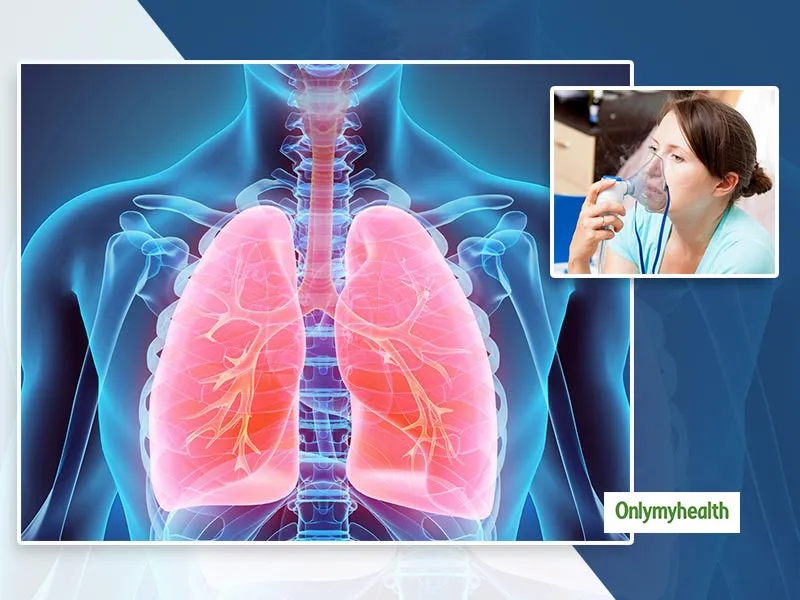
That tickle in your throat, the sudden wave of fatigue – when respiratory symptoms strike, it can be tough to know what's going on. Are you battling a common cold, the seasonal flu, or could it be something more serious? Understanding the nuances between different respiratory illnesses is crucial for seeking the right care and preventing further spread.
Table of Content:-
We spoke with Dr. Shrey Srivastav, Senior Consultant and General Physician at Sharda Hospital, Noida, to shed light on how to differentiate between these often-confusing conditions.
"Many respiratory illnesses share initial symptoms, making self-diagnosis tricky," explains Dr. Srivastav. "However, there are key differences in how these illnesses typically present and progress."
Let's break down some common culprits:
Common Cold: A Gradual Annoyance
Think of the common cold as the mildest of the bunch. It usually comes on gradually and primarily affects the upper respiratory tract.
- Key Symptoms: Runny or stuffy nose (often starting clear and becoming thicker), sore throat, sneezing, mild cough.
- Other Possible Symptoms: Headache, body aches (usually mild), fatigue (usually mild).
- Fever: Rarely present or very low-grade.
- Onset: Symptoms develop slowly, over a day or two.
- Duration: Typically lasts for a few days to a week.
"With a cold, you usually feel under the weather but are still able to carry out your daily activities," Dr. Srivastav points out.

Also Read: Can Going Green Lower Your Breast Cancer Risk? Expert Weighs In
The Flu (Influenza): A Sudden and Systemic Attack
The flu tends to hit you like a truck. It often comes on suddenly and affects the whole body.
- Key Symptoms: High fever (100°F or higher), chills, muscle aches and pains, headache, fatigue (often severe).
- Other Possible Symptoms: Sore throat, cough (usually dry), runny or stuffy nose (less prominent than in a cold).
- Fever: Common and often high.
- Onset: Symptoms appear abruptly, often within hours.
- Duration: Can last for a week or more, with fatigue lingering.
"The flu can leave you feeling completely drained and unable to perform your usual tasks," emphasises Dr. Srivastav. "The body aches and fever are usually much more intense than with a cold."
COVID-19: Variable Symptoms, Potential Severity
COVID-19 presents with a wider range of symptoms, and the severity can vary greatly from person to person.
- Key Symptoms (Common): Fever, cough (usually dry), fatigue.
- Other Possible Symptoms: Sore throat, runny or stuffy nose, headache, muscle aches, loss of taste or smell, nausea, vomiting, diarrhoea, shortness of breath or difficulty breathing.
- Fever: Can be present.
- Onset: Can vary from gradual to sudden.
- Duration: Varies widely, from mild and short-lived to more prolonged.
"The loss of taste or smell was a distinctive symptom early in the pandemic, though it's less prevalent with newer variants," Dr. Srivastav notes. "The variability in symptoms and potential for severe illness make testing crucial if you suspect COVID-19."

Allergies: The Seasonal Irritant
While not an infection, allergies can cause respiratory symptoms that sometimes get confused with colds.
- Key Symptoms: Sneezing, runny or stuffy nose (often clear and watery), itchy eyes, itchy throat.
- Other Possible Symptoms: Cough (usually due to postnasal drip), fatigue (sometimes).
- Fever: Never present.
- Onset: Often seasonal or triggered by specific allergens.
- Duration: Can last for weeks or months, depending on the allergen exposure.
"Allergy symptoms tend to be more persistent and often involve itching, which is not typical of colds or the flu," Dr. Srivastav clarifies.
When to Seek Expert Advice
Dr. Srivastav stresses that while this information can be helpful, it's not a substitute for professional medical advice. You should consult a doctor if you experience any of the following:
- Difficulty breathing or shortness of breath
- Persistent high fever
- Chest pain or pressure
- Severe or persistent cough
- Confusion or dizziness
- Symptoms that worsen or don't improve after a reasonable period
- Underlying health conditions that put you at higher risk for complications
"Early diagnosis and appropriate management are key to preventing complications and ensuring a faster recovery," advises Dr. Srivastav. "Don't hesitate to seek medical attention if you have concerns about your symptoms."
By understanding the general characteristics of different respiratory illnesses, you can be more informed about what your body might be going through. However, always remember that a healthcare professional is the best resource for accurate diagnosis and personalised treatment. Stay vigilant, prioritise your health, and don't hesitate to reach out for expert guidance when needed.
Also watch this video
How we keep this article up to date:
We work with experts and keep a close eye on the latest in health and wellness. Whenever there is a new research or helpful information, we update our articles with accurate and useful advice.
Current Version